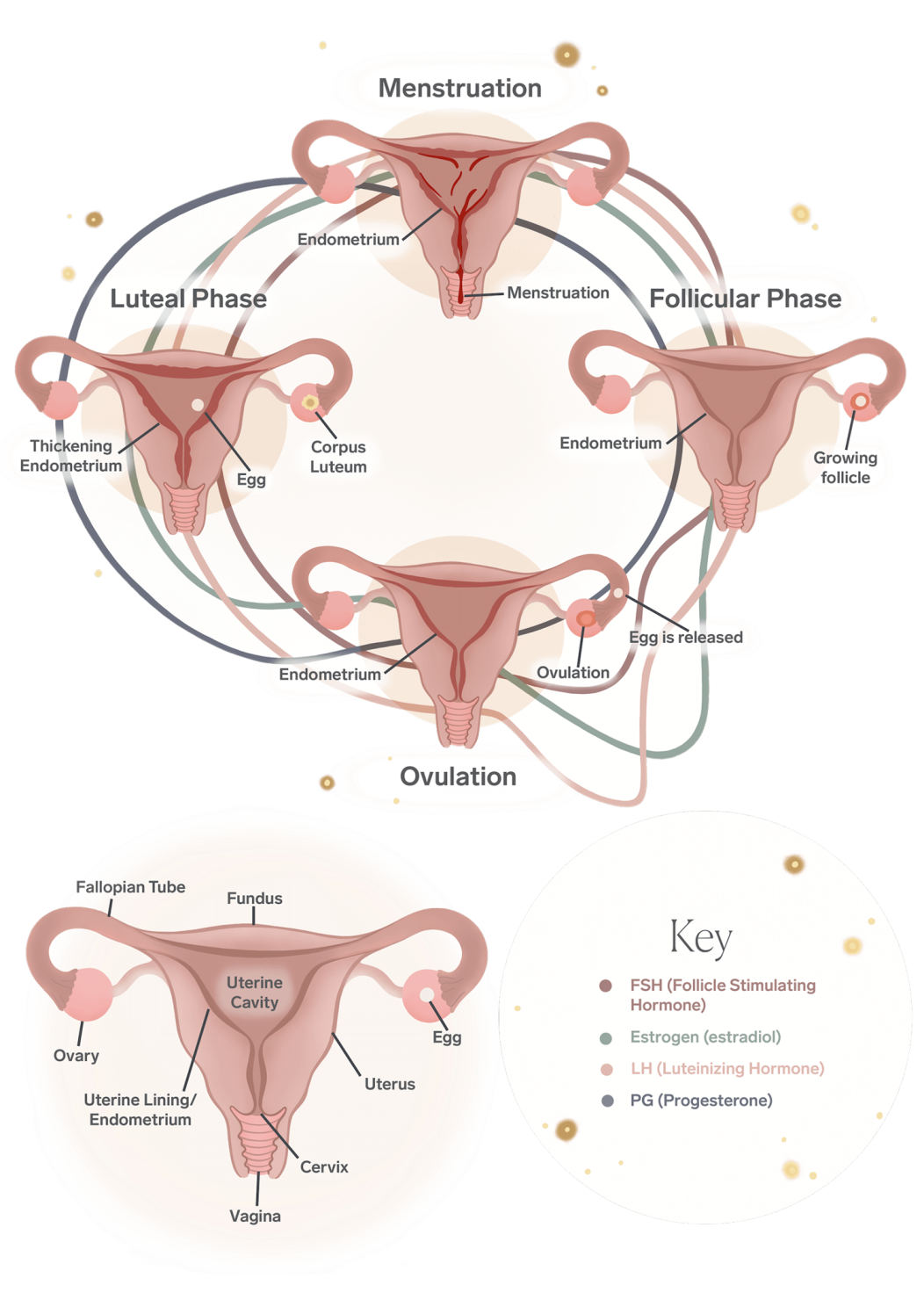The Zoom In: What Is the Follicular Phase?
A closer look at what really happens during the first part of your cycle.
The menstrual cycle contains four stages: menstruation, follicular phase, ovulation, and luteal phase. The follicular phase encompasses everything that happens before ovulation (including your period). It starts with the first day of your period and ends when you ovulate. The follicular phase length lasts, on average, about 16 days, but can obviously vary depending on different factors, like menstrual cycle length.
During this phase, estrogen levels start to rise. The hypothalamus (a small region at the base of your brain) sends a message to the pituitary gland to produce Follicle Stimulating Hormone (FSH).

FSH stimulates the growth of follicles in the ovary. During the follicular phase, FSH causes the ovaries to develop on average around 10 (each follicle contains an 'immature’ egg) until a single follicle is selected to be prepared for ovulation (this happens about midway through the follicular phase). As follicles develop in the ovary, they produce estrogen.
Another hormone that is produced during this phase is the luteinizing hormone. Luteinizing hormone starts the process of ovulation and stops estrogen production.
Changing hormone levels and hormone imbalance are common in this stage. Menstrual period cramps and other pain can also be present. A great aid for the pain are our pain patches that can be placed on the uterine area and help with accompanying discomfort.
The follicular phase can also start to shorten as you get older. Short follicular phase can begin in the 30s and lessen the chances of pregnancy. FSH levels during a short follicular phase continue to increase but luteinizing hormone levels will stay low. These hormone level changes affect fertility.
Nonetheless, understanding how to track your menstrual cycle is a helpful way of knowing which phase you're in each month. Tracking your cycle is also helpful for tracking any hormone imbalance that can occur or if you're looking for your fertility window to increase the chances of pregnancy.
Visit us at Hummingway to learn more about the different phases of a menstrual cycle and what they mean.
Resources addressed:
Your hormones can be complex and unpredictable. That’s why we’re here, on The Regular, to do what’s long overdue - to demystify what’s going on with our reproductive systems, our hormones and our whole cycle.
We’re here to support your day-to-day queries serving useful content that is uncomplicated and unbiased. No topic is too complicated or too specific for us to address/focus on.


